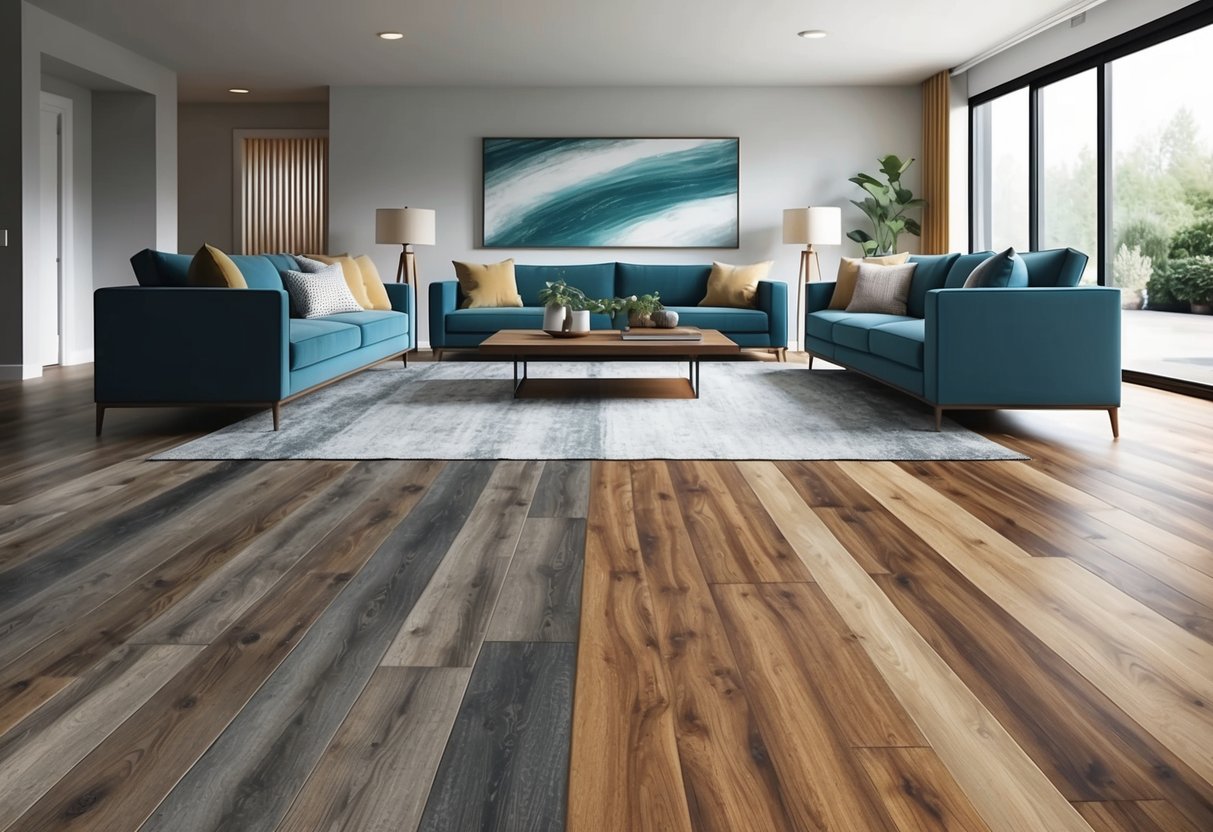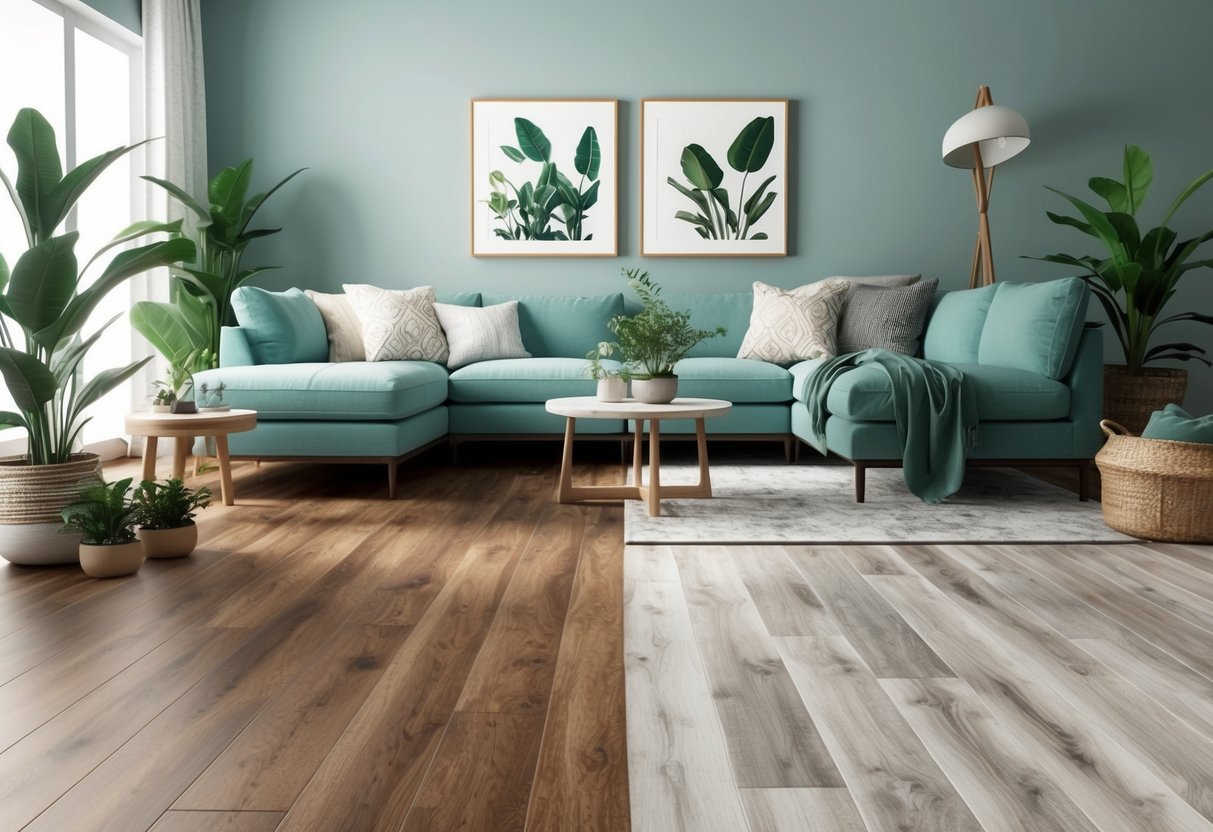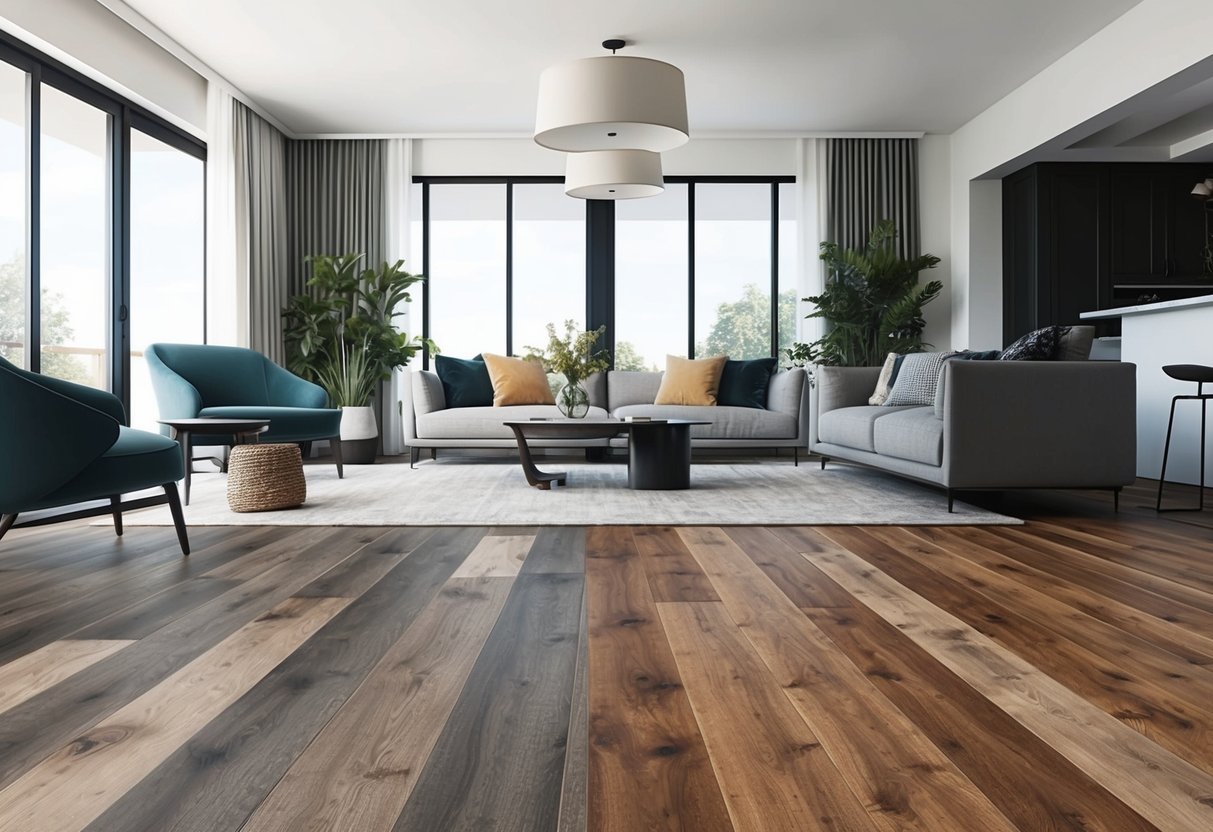
Environmental Impact and Sustainability

Flooring materials impact the environment at every stage, from sourcing to end-of-life disposal. Making an informed choice means understanding how each option affects resource use, indoor air quality, and overall sustainability.
Eco-Friendly Flooring Choices
Solid hardwood flooring can be an eco-friendly choice if the wood is harvested from sustainably managed forests. Certification programs such as the Forest Stewardship Council (FSC) help consumers identify wood floors that come from responsibly managed sources.
Engineered wood is also considered more sustainable than solid hardwood in some applications, as it uses less slow-growing hardwood per plank.
Luxury vinyl plank (LVP) flooring, by comparison, is made from synthetic materials, mainly PVC. Recent advancements have improved the environmental impact of LVP, with some manufacturers opting for lower-emission adhesives and phthalate-free formulations.
These new production methods can enhance indoor air quality. However, LVP remains reliant on petroleum-derived plastics, which can be a concern for those seeking truly eco-friendly flooring solutions.
For a detailed look at how manufacturers are improving LVP’s credentials, see this review of LVP’s environmental impact.
Recyclability and Materials Sourcing
Hardwood flooring is typically biodegradable and can often be reclaimed, refinished, or recycled at the end of its life. Sourcing locally milled or reclaimed wood further reduces transportation and resource use, limiting the product’s carbon footprint.
Engineered wood, due to its multi-layer construction, uses more adhesives but still retains some recycling potential and often makes use of renewable timber species.
LVP’s recyclability is more limited, as most types cannot be recycled through standard municipal systems. Disposal can contribute to landfill waste, and the extraction of raw materials for vinyl production has its own environmental issues.
Some manufacturers are now pioneering recycling and take-back programs, but these remain uncommon. For more details on how material choices influence environmental impact, visit this comparison of LVP and hardwood flooring environmental issues.
Frequently Asked Questions

Luxury vinyl plank and hardwood flooring offer different benefits in terms of cost, durability, water resistance, and style. Careful consideration of factors like installation expenses, resale value, visual appeal, maintenance needs, and environmental impacts can help homeowners make an informed decision.
What are the cost differences between luxury vinyl plank and traditional hardwood flooring?
Luxury vinyl plank (LVP) is generally more affordable both in material and installation costs than traditional hardwood floors. LVP typically requires less labor and subfloor preparation, which keeps professional installation charges down.
Hardwood flooring, especially solid wood options, tends to be priced higher due to the cost of natural materials and the skill required for proper installation.
How does the resale value of homes compare when choosing between luxury vinyl plank and hardwood?
Hardwood flooring is often seen as a premium feature by homebuyers and may provide a higher increase in home resale value compared to LVP. Many buyers consider hardwood as a long-term investment that adds character and distinction to a property.
While LVP can still modernize a home’s look, it usually does not offer the same impact on perceived home value as genuine hardwood.
What are the durability comparisons between luxury vinyl plank flooring and hardwood floors?
LVP is known for its resistance to scratches, dents, and general wear, making it suitable for homes with heavy foot traffic, kids, or pets. In contrast, hardwood can be vulnerable to scratches, fading, and dents over time, especially in high-use areas.
However, unlike LVP, hardwood can be sanded and refinished multiple times to restore its surface and longevity as noted by Oshkosh Designs.
How do luxury vinyl plank and hardwood floors compare in terms of water resistance and maintenance?
Luxury vinyl plank offers superior water resistance, making it suitable for moisture-prone areas including kitchens, bathrooms, and basements. It is also easy to clean and requires little more than routine sweeping and occasional mopping.
Hardwood flooring is susceptible to water damage and should be kept dry, requiring special cleaners and more frequent attention to avoid warping or staining, especially in humid environments, as highlighted by Flooring Inc..
Can luxury vinyl plank flooring mimic the look of hardwood, and how do they visually compare?
Modern LVP can closely replicate the appearance and texture of hardwood thanks to advanced photographic technology and embossed finishes. The visual effect can be striking and realistic from a distance.
However, true hardwood offers a unique grain and warmth that LVP cannot fully match up close, and it can be refinished in different stains, giving it design flexibility over time.
What are the environmental impacts of choosing luxury vinyl plank versus hardwood flooring?
Hardwood flooring, particularly when sourced from sustainably managed forests, is a renewable resource. It can have a smaller environmental footprint long-term.
Luxury vinyl plank is made from synthetic materials, including PVC. Its manufacturing process involves chemicals and produces emissions.
Recycling options for LVP are limited. Disposal can be less eco-friendly compared to hardwood.